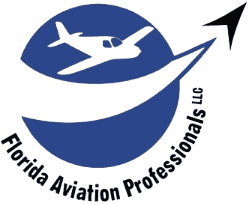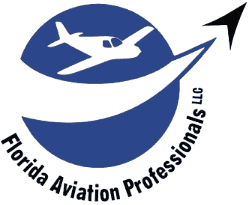Pilot Licenses Explained
The Federal Aviation Administration (FAA) issues pilot certificates, also known as airman certificates or pilot’s licenses. These licenses are what authorize an individual to fly an aircraft in the United States. The type of certificate a pilot has determines the privileges they have, such as whether they can fly for compensation or carry passengers. Florida Aviation Professionals offers training for an individual to fly single engine airplanes under the following types of FAA pilot licenses:
Private pilot license
The most common type of FAA pilot license, which allows the holder to fly alone or with others, but not for compensation or hire. To obtain a private pilot license, a pilot must:
- Complete the required FAA training and endorsements
- Log a minimum of 40 hours of flight time (most students will require 70 hours or more to be proficient)
- Read, speak, write and understand English.
- Be 17 years of age.
- Have a valid FAA medical certificate, minimum 3rd class
- Pass a written test with a score of at least 70%.
- Pass an FAA check-ride.
Instrument license
The FAA’s Instrument Rating (IR) allows pilots to fly solely by reference to instruments. This rating is considered valuable and can provide several benefits, such as allowing a pilot to fly in adverse or low visibility weather conditions. To obtain a instrument pilot license, a pilot must:
- Hold a current private pilot license
- Complete the required FAA training and endorsements
- Log a minimum of 40 hours of actual or simulated instrument flight time.
- Read, speak, write and understand English.
- Be 17 years of age.
- Have a valid FAA medical certificate, minimum 3rd class
- Pass a written test with a score of at least 70%.
- Pass an FAA check-ride.
Commercial pilot license
An advanced qualification that allows the holder to fly an aircraft for compensation or hire. To obtain a commercial pilot license, a pilot must:
- Hold a current private pilot license
- Complete the required FAA training and endorsements
- Log a minimum of 250 hours flight time.
- Read, speak, write and understand English.
- Be 18 years of age.
- Have a valid FAA medical certificate, minimum 2nd class
- Pass a written test with a score of at least 70%.
- Pass an FAA check-ride.
Certified Flight Instructor (CFI)
A Certified Flight Instructor (CFI) certificate from the FAA allows a commercial pilot to teach other pilot applicants, perform flight reviews, and assess aircraft proficiency. CFIs can also conduct insurance checkouts. CFIs can work at their own flight school, an FAA-certified flight school, or an educational institution. To obtain a CFI pilot license, a pilot must:
- Hold a current commercial pilot license
- Complete the required FAA training and endorsements
- Read, speak, write and understand English.
- Be 18 years of age.
- Have a valid FAA medical certificate, minimum 3rd class
- Pass two written tests with scores of at least 70%.
- Pass an FAA check-ride
Certified Flight Instructor-Instrument (CFII)
A Certified Flight Instructor-Instrument (CFII) certificate from the FAA allows a commercial pilot to teach instrument flying to other pilots. CFII instructors can also perform Instrument Proficiency Checks (IPCs), which are ongoing training sessions that help instrument pilots keep their certificates up to date. To obtain a CFII pilot license, a pilot must:
- Hold a current commercial pilot license
- Complete the required FAA training and endorsements
- Read, speak, write and understand English.
- Be 18 years of age.
- Have a valid FAA medical certificate, minimum 3rd class
- Pass a written test with a score of at least 70%.
- Pass an FAA check-ride

